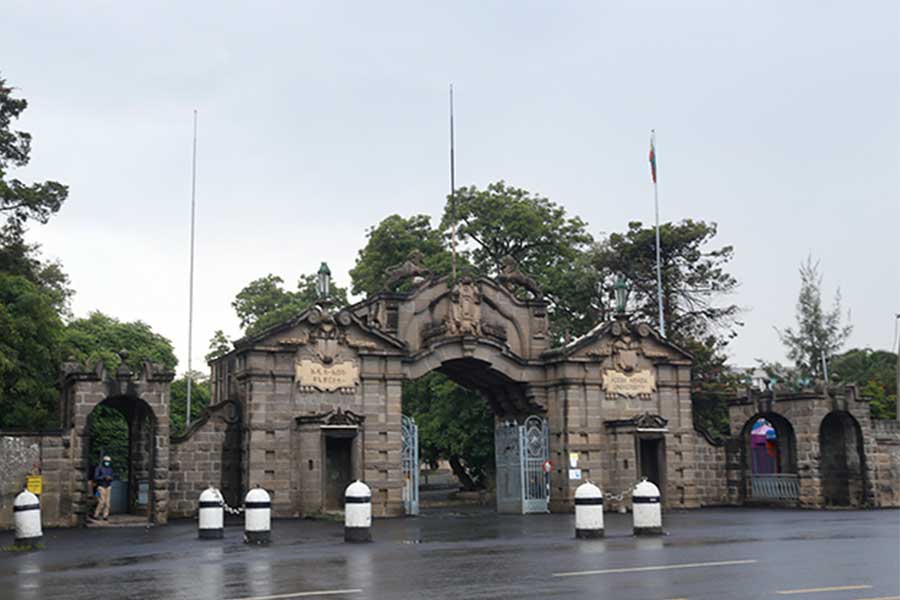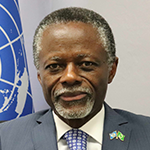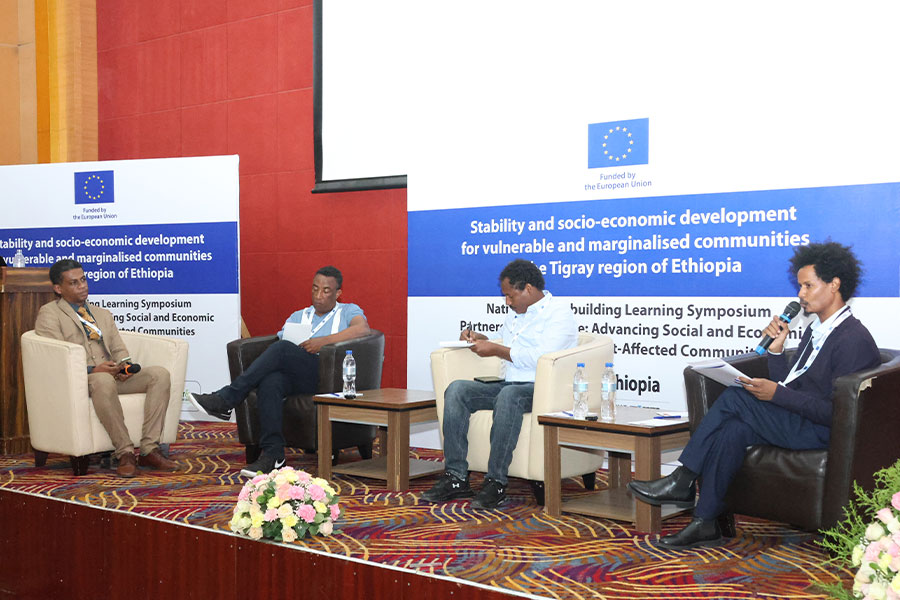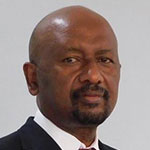
Agenda | May 31,2020
Sep 28 , 2024
By Parfait Onanga-Anyanga
Peace is a common good. But, it often eludes us, partly because of our actions and omissions. However, it is indisputable that peace has never been so coveted as it is today.
While presenting ‘Our Common Agenda’, United Nations Secretary-General Antonio Guterres characterised our era as the “biggest shared test since the Second World War, where humanity faces a stark and urgent choice: a breakdown or a breakthrough”.
The findings on progress towards attaining the sustainable development goals (SDGs) are instructive. High levels of poverty compound already complex socio-economic realities, which outdated education systems cannot address. Food systems, unless transformed, will not allow us to eradicate hunger by 2030, leaving a projected two billion people food insecure by 2050. The Covid-19 pandemic exposed the fragilities of global health systems, underscoring the need for collective solutions.
Gender inequality continues to hinder social progress. Essential services such as water, sanitation, affordable and sustainable energy, and decent employment, prerequisites for inclusive and sustainable economic growth, are moving backwards with regards to the SDGs and the aspirations of the African Union Agenda 2063. Infrastructure for inclusive, safer, sustainable and resilient human settlements is lacking. We are experiencing unprecedented extreme weather events and climate patterns.
On the peace and security front, multilateralism is evidently under severe strain. We are witnessing mistrust among nations and competition among great powers; a growing sense of global instability, turmoil and polarisation; increasing militarisation; and flagrant challenges to the normative order and international law, including instances of disregard for the most fundamental principle of the territorial integrity of sovereign states.
The institutions and mechanisms established to promote cooperation and understanding between states, and to prevent ‘the scourge of war’, have become inadequate, at times putting into question the viability of peace.
Last week, the General Assembly of the United Nations held the "Summit of the Future," designed to forge a global consensus on our shared future and what we can do today to secure it. The Summit called for decisive action on sustainable development, financing for development, international peace and security, technology and innovation, youth and future generations, and transforming global governance. A peace, security and development nexus approach should be central to these efforts, to ensure peace, security and shared prosperity, rooted in the purposes and principles of the UN Charter.
In a world in transition, expectations are high that the ‘Pact for the Future’ will reflect principles of unity, equity, inclusivity and solidarity, aligned with the realities of the 21st Century, and where peace reigns.
Strengthening preventive diplomacy for peace is essential. This requires greater use of the United Nations as an inclusive arena for diplomacy; enhancing the Secretary-General’s ‘Good Offices’ role; strengthening collaboration between the United Nations and regional organisations such as the African Union (AU); and building stronger national prevention strategies. Reforming the United Nations, particularly the Security Council, is also vital to make it more representative, agile, responsive, accountable and resilient, as well as reinforcing its ability to facilitate a rules-based, peaceful international order.
The Secretary-General has also prioritised conflict response, including through conflict prevention and management, peacekeeping and AU-led peace support operations, and addressing root causes of conflict. Innovative financing mechanisms for peace support operations are crucial, particularly in Africa, which faces significant vulnerabilities, to more effectively respond to evolving asymmetrical threats and a changing security landscape. This, in turn, should make the United Nations Security Council more credible since more than 70pc of its agenda focuses on Africa.
By adopting resolution 2719 in December 2023, the Security Council provided itself another tool for a more tailored response to address peace and security challenges in Africa through greater collaboration with regional intergovernmental bodies, notably the African Union (AU), consistent with Chapter VIII of the UN Charter.
We are at a critical moment in global history, with a unique opportunity to make bold and more intelligent choices for future generations. The stakes cannot be higher. Sounding the alarm bell, Secretary-General Guterres stressed that “The world is faced with a stark choice: reform or rupture” and warned that “it may be our last chance to act decisively and responsibly.”
PUBLISHED ON
Sep 28,2024 [ VOL
25 , NO
1274]


Agenda | May 31,2020

Editorial | Feb 13,2021

Radar |

Editorial | Apr 09,2022

Commentaries | Mar 16,2024

In-Picture | Oct 18,2025

Viewpoints | Sep 19,2020

Commentaries | Dec 21,2019

Addis Fortune | Feb 14,2022

Verbatim | Sep 18,2021

Photo Gallery | 179750 Views | May 06,2019

Photo Gallery | 169950 Views | Apr 26,2019

Photo Gallery | 160909 Views | Oct 06,2021

My Opinion | 137201 Views | Aug 14,2021

Dec 22 , 2024 . By TIZITA SHEWAFERAW
Charged with transforming colossal state-owned enterprises into modern and competitiv...

Aug 18 , 2024 . By AKSAH ITALO
Although predictable Yonas Zerihun's job in the ride-hailing service is not immune to...

Jul 28 , 2024 . By TIZITA SHEWAFERAW
Unhabitual, perhaps too many, Samuel Gebreyohannes, 38, used to occasionally enjoy a couple of beers at breakfast. However, he recently swit...

Jul 13 , 2024 . By AKSAH ITALO
Investors who rely on tractors, trucks, and field vehicles for commuting, transporting commodities, and f...

Nov 1 , 2025
The National Bank of Ethiopia (NBE) issued a statement two weeks ago that appeared to...

Oct 25 , 2025
The regulatory machinery is on overdrive. In only two years, no fewer than 35 new pro...

Oct 18 , 2025
The political establishment, notably the ruling party and its top brass, has become p...

Oct 11 , 2025
Ladislas Farago, a roving Associated Press (AP) correspondent, arrived in Ethiopia in...

Nov 2 , 2025
The National Bank of Ethiopia (NBE) has scrapped the credit-growth ceiling that had s...

Nov 2 , 2025 . By SURAFEL MULUGETA
The burgeoning data mining industry is struggling with mounting concerns following th...

Nov 2 , 2025 . By YITBAREK GETACHEW
Berhan Bank has chosen a different route in its pursuit of a new headquarters, opting for a transitional building instea...

Nov 2 , 2025 . By BEZAWIT HULUAGER
Nib International Bank S.C. has found itself at the epicentre of a severe governance...